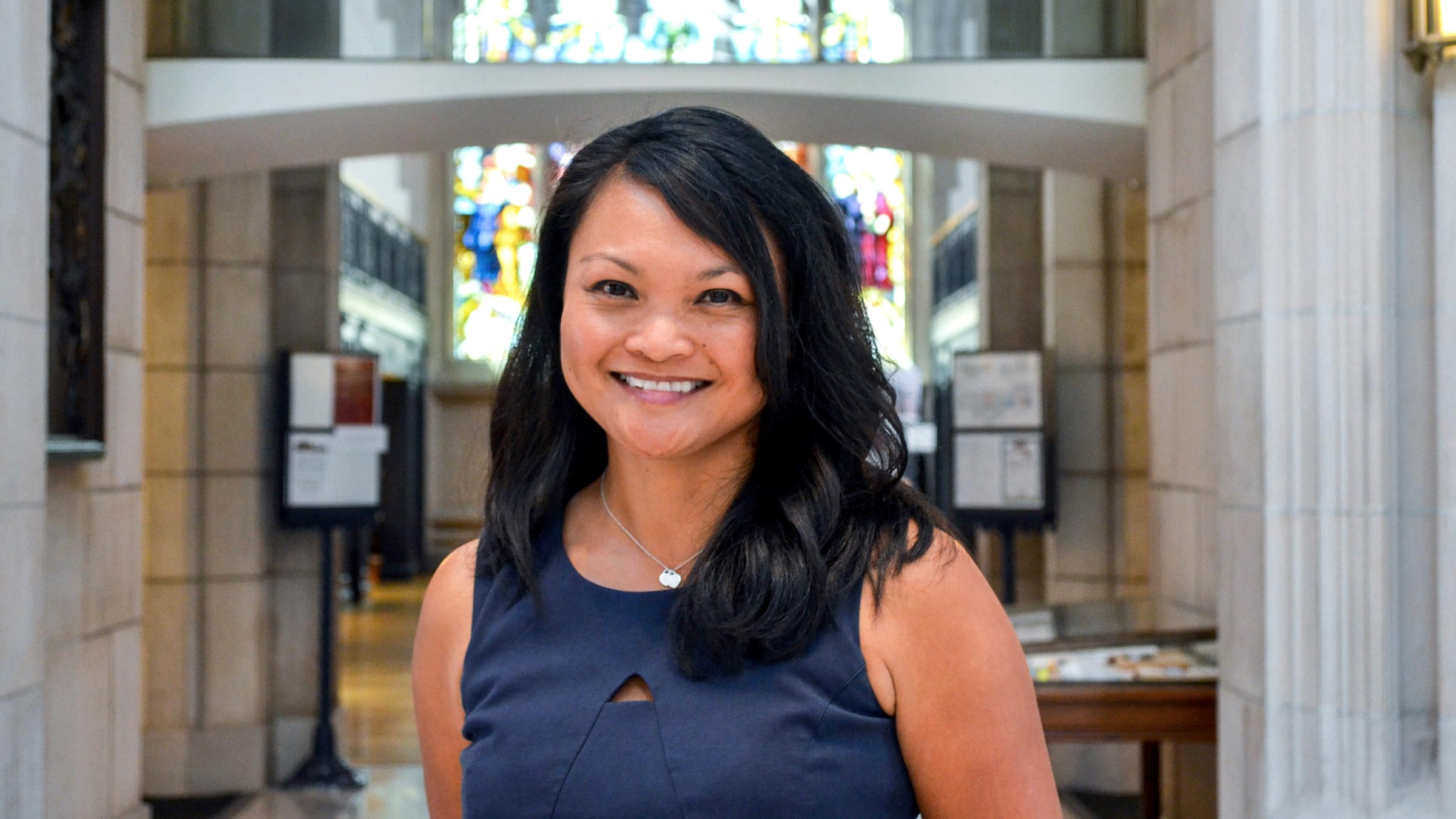Outside the ClassroomLearning How to Bounce BackProf. Michele Tugade ’95 helps students, astronauts cope with stress
Outside the ClassroomLearning How to Bounce BackProf. Michele Tugade ’95 helps students, astronauts cope with stress
Maybe you’re a first-year college student who is away from home for the first time, and you just got a disappointing grade on a test. Perhaps you are managing an addiction, on the path to recovery. Or you’re a military veteran managing the transition to civilian life. Or perhaps you’re an astronaut returning to daily life on earth after spending a couple of months in the International Space Station. Whoever you are, stress is almost certainly a part of your life.
Prof. of Psychological Science Michele Tugade ’95 says one key to happiness in life is developing ways to handle stressful situations. Whether she’s conducting studies at Vassar’s Emotions and Psychophysiology Laboratory or acting as an advisor for NASA, Tugade has spent most of her professional life examining how people confront stress and find ways to bounce back. “My research is about positive emotions, coping, self-regulation and resilience,” she said.

Tugade, who has been teaching at Vassar since 2004, says college students are apt subjects for her research. “There’s an epidemic of depression on college campuses, a lot of anxiety and feelings of loneliness,” she said. “In many cases, it stems from the pressure of perfectionism and a reluctance to seek help when you run into difficulties.”
Tugade said the rise of hi-tech communication has contributed to this phenomenon. “A colleague of mine conducted a longitudinal study that shows this rise in depression has paralleled the popularity of mobile phones,” she said. “We don’t share our failures on social media, so we don’t think other people have them.”
Together with collaborator Rachel Simmons ’96, Tugade examines how to manage these pressures with self-compassion, and she strives to determine what inspires people to take healthy risks, even at the risk of potential failure.
“By attending to these relatively fleeting positive experiences, people can build resilience in the face of subsequent failures or negative experiences.”
But if the technology explosion is part of the problem, Tugade said, it can also be part of the solution. “As part of my research with students, I remind participants to actively notice the positive things that happen in their lives,” she said. “We use an app that helps re-focus one’s mindset when managing stress. It sends you a reminder to think about something good that has happened to you or to think about some things for which you are grateful, to pause and reflect on these things and share them in conversation.
“In the midst of our hassled lives,” Tugade continued, “these positive experiences are often overlooked. By attending to these relatively fleeting positive experiences, people can build resilience in the face of subsequent failures or negative experiences.”
Tugade and her Vassar colleague, Associate Prof of Psychological Science Allan Clifton, serve as grant reviewers and Panel Chairs for the NASA Human Exploration Research Opportunities (HERO) program. “We talk to scientists about the psychological support astronauts need on long-duration space missions, which leaves them in isolation from human contact for extended periods of time,” Tugade explained. “We evaluate grant proposals that are submitted to NASA to assess the scientific merit and impact of the proposed research. Astronauts will need to draw on their resilience after spending months in outer space. It will become even more critical for Mars travelers, and the target date for that voyage is 2030.”
Tugade enjoys intergrating her research into her teaching at Vassar. She teaches at all levels of the curriculum, with a popular introductory Psychological Science course on “Health and Happiness” and senior seminars that focus on “Resilience and Thriving.” Her research can be found in her book, The Handbook of Positive Emotions (Guilford Press).